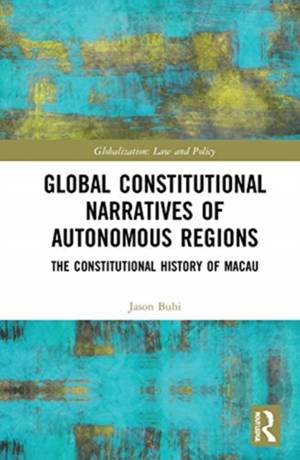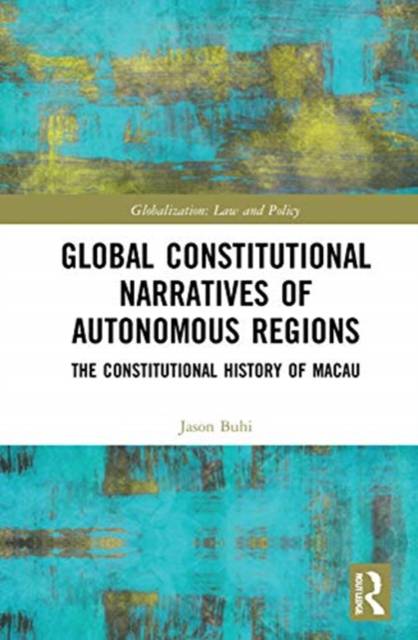
- Afhalen na 1 uur in een winkel met voorraad
- Gratis thuislevering in België vanaf € 30
- Ruim aanbod met 7 miljoen producten
- Afhalen na 1 uur in een winkel met voorraad
- Gratis thuislevering in België vanaf € 30
- Ruim aanbod met 7 miljoen producten
Global Constitutional Narratives of Autonomous Regions
The Constitutional History of Macau
Jason BuhiOmschrijving
With international attention focused on Hong Kong, many forget that Macau also exists in a delicate "one country, two systems" (OCTS) balance with mainland China. This book provides insights into the circumstances surrounding the less-understood half of China's OCTS policy, including the stagnation of representational government, and the location of any Macau characteristics in the Macau Basic Law.
Despite being Hong Kong's sister "Special Administrative Region" (SAR) within the People's Republic of China, Macau's unique constitutional development under Portuguese and Chinese administration remains under-appreciated despite its potential contributions to local, national, and international constitutional discourse. Utilizing a multidisciplinary approach, including doctrinal, historical, and comparative methodologies, this work fills that gap. The research blends Portuguese, Chinese, and foreign-language sources in order to reconstruct a balanced constitutional narrative. The book focuses on a consequential effect of globalization - that is, the assimilation of a long-standing and unique constitutional order by a new hegemonic sovereign - including processes for internationalization as China opened up, legal harmonization of two distinct legal and socioeconomic orders, juridification of local affairs with the establishment of a new local court system in preparation for handover to the Chinese regime, and democratization (or the lack thereof) among the various communities comprising the Macanese polity before and since.
Focusing on Macau's unique development at the crux of European and Chinese empires, and the role it plays as a mirror for Chinese intentions vis-a-vis Hong Kong today, the book will be of interest to those working in constitutional law, politics, and history.
Specificaties
Betrokkenen
- Auteur(s):
- Uitgeverij:
Inhoud
- Aantal bladzijden:
- 216
- Taal:
- Engels
- Reeks:
Eigenschappen
- Productcode (EAN):
- 9780367483746
- Verschijningsdatum:
- 30/03/2021
- Uitvoering:
- Hardcover
- Formaat:
- Genaaid
- Afmetingen:
- 156 mm x 233 mm
- Gewicht:
- 599 g

Alleen bij Standaard Boekhandel
Beoordelingen
We publiceren alleen reviews die voldoen aan de voorwaarden voor reviews. Bekijk onze voorwaarden voor reviews.











